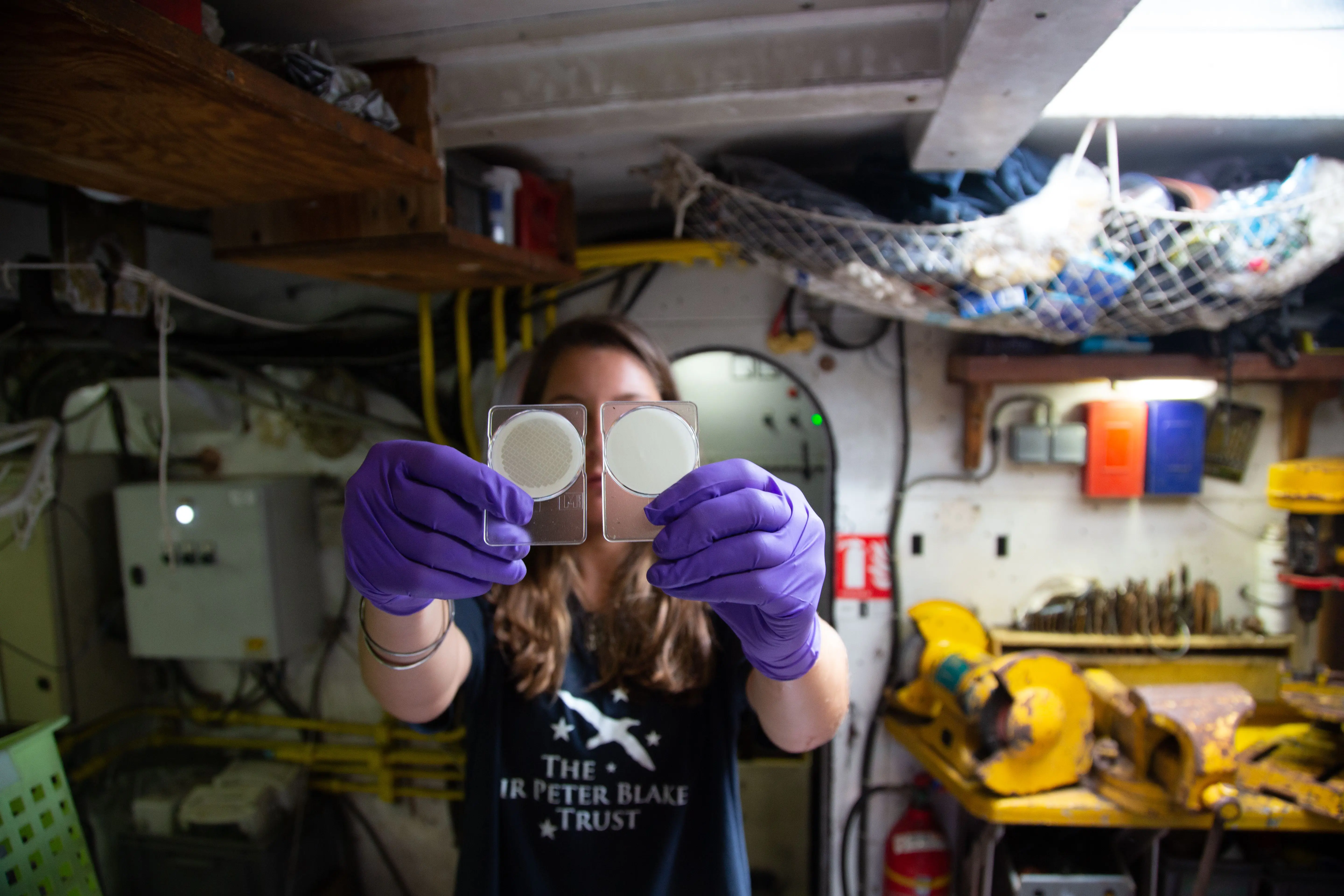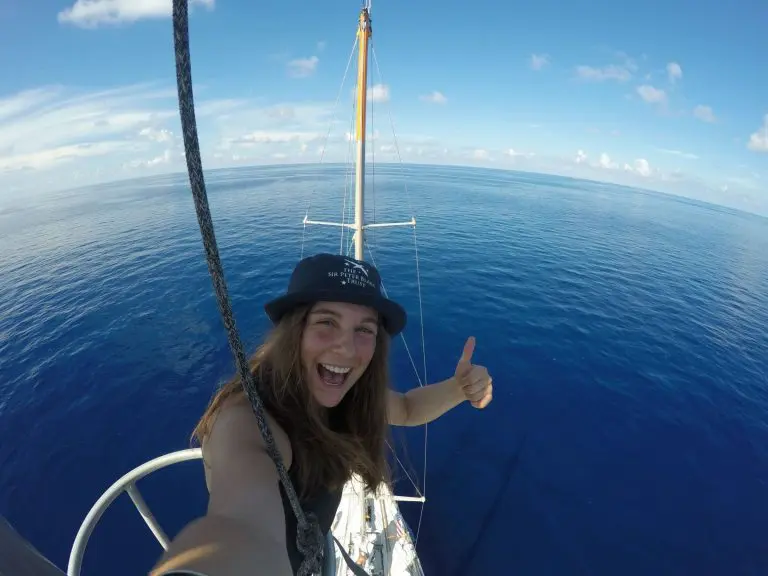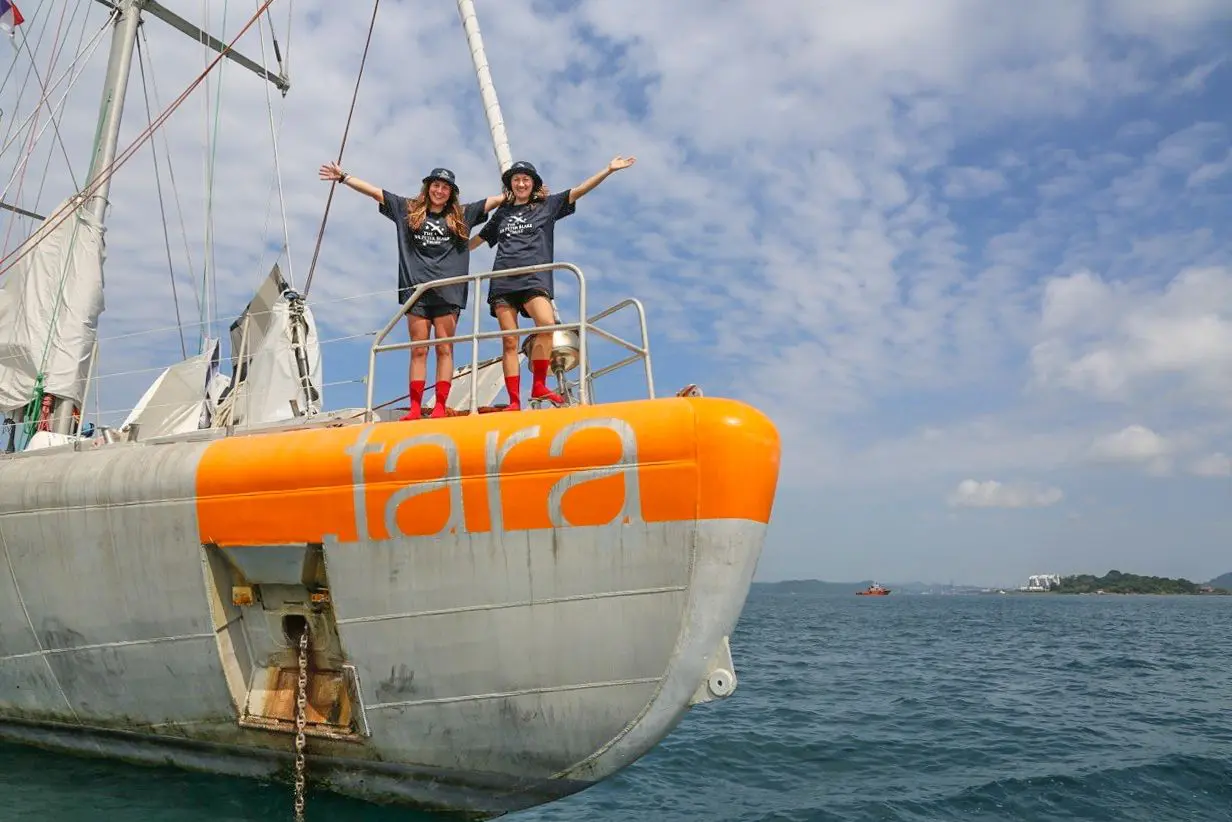On board Sir Peter Blake’s old expedition boat in the Caribbean Sea, Millie Mannering watched pilot whales dancing around the schooner’s bow, and dipped a net into a massive bloom of phytoplankton stirred up by a devastating hurricane.
The 19-year-old swam in azure blue waters 4500m deep, and stood shoulder to shoulder with international scientists measuring the health of the oceans.
But what really left the Otago University student dumbfounded during her voyage on board the research vessel Tara was something remarkably smaller in size.
A simple plastic bottle.
“We’d sailed through the Panama Canal and hadn’t seen land for four or five days, but I was completely shocked to see plastic bottles floating past us,” Mannering says.
“You feel as though you’re so far from any kind of anthropogenic impact, but suddenly you see an everyday household item in the middle of the ocean. It’s really overwhelming seeing how widespread the impact we have is.”
Mannering was one of two Sir Peter Blake Trust Ambassadors on board Tara – the 35m ice-strengthened aluminium schooner that was once Blake’s Seamaster, and is now owned by the French environmental organisation, Tara Expeditions.
She and Emily Wilson, a 25-year-old programme co-ordinator for the youth Festival of the Future in Wellington, joined the Tara crew in Panama City for a 19-day scientific voyage to New York.
“Seeing the plastics in the ocean had a much more sobering impact than any prior knowledge I’d gained from studying academic research,” Mannering says. “To be able to be there and see what’s happening to our oceans in real time was mind-blowing.”
Now in the midst of exams towards her Bachelor of Science degree, she was driven to apply for the ambassadorship because of a lifelong passion for the environment, in particular the ocean.
“I’m studying zoology and marine science at Otago, so to have the opportunity to work on Sir Peter’s boat with a team of scientists was incredible,” says Mannering, who’s also a surfer, white-water kayaker, scuba and free diver.
“When I tell people I’ve been on a yacht in the Bahamas, I’ve had to explain that it isn’t a superyacht. Tara was built for ice exploration, so it got a bit tippy in the open seas.”
The boat and her crew had to seek shelter in the Bahamas from Hurricane Florence, which hit the United States’ Carolinas with ferocity, claiming at least 50 lives and causing severe damage.
“There was a huge network of storms and we found ourselves right in the middle of it,” Mannering says.
Although they were racing up the North American coast to evade the following hurricanes, Helen and Isaac, the Tara crew were still able to trawl for samples from the Atlantic waters – with fascinating results.
Off the coast of North Carolina, Mannering helped researchers pull in specially-designed tow nets that were overflowing with zooplankton and fish larvae.
“It was really exciting after the hurricane to find the late effects of a plankton bloom,” Mannering says.
The strong winds and high swells from Hurricane Florence had stirred up different layers of the ocean. When layers of nutrient rich, denser waters mixed with the sunlit surface layers above them, it prompted the rapid growth of phytoplankton. That then provided a large food source for the nightly migrations of zooplankton and fish larvae.
Aerosol samples were taken regularly by the crew to monitor air quality, with samples collected for both microscopy and chemical analysis.
“There was a huge difference between the blackened filter paper taken in Panama City and New York City, and the pristine white samples we took from the middle of the Caribbean Sea. It was pretty confronting to see the pollution first-hand,” Mannering says.
Collecting samples from the air and the sea has allowed the Tara Expedition team to study the impact of climate change on the world’s largest ocean, the Pacific, over the last two-and-a-half years. The team of scientists, who constantly changed on board, have collected thousands of samples of coral, fish and plankton during the voyage.
Tara – which also visited New Zealand last year, midway through the voyage – is expected to finally arrive home in Lorient, France, this weekend.

“I’m going to look at doing my master’s in marine science or a career in science communication. I know this experience will strongly influence whatever I end up doing,” she says.
Critical to her role as a Blake Ambassador is sharing what she’s learned – including writing blogs from her expedition, and speaking to students in Dunedin and at her primary school, View Hill, in the Waimakariri Gorge where she grew up.
“What Sir Peter realised when he started documenting his adventures on Seamaster, was the importance of sharing what’s going on in our oceans with people,” she says.
“On board Tara, they all have the same love for the ocean and the same urge to protect it. They find it so important to carry on Peter’s legacy by continuing the research and sharing it as well. Without communication, the science is futile.”
The ambassadorships on Tara are part of an on-going relationship between the Sir Peter Blake Trust and the Tara Expeditions Foundation.
“For our founders and myself, having a long-term collaboration with the Sir Peter Blake Trust is very important as it is a way to keep New Zealand youth onboard,” says Romain Troublé, CEO of the Tara Foundation. “One can also see the Tara Foundation as a legacy of Peter’s vision for the future of our planet.”
Mannering would love the chance to return to Tara, but in a more permanent role. “It’s an awesome way of life, and to be so connected to the environment. I’ve promised I’ll be back no matter what – even as an assistant chef or a musician,” she says. “Even though I have no musical skills, I would learn just to go back!”
- The Tara Ambassadorship was supported by NIWA



